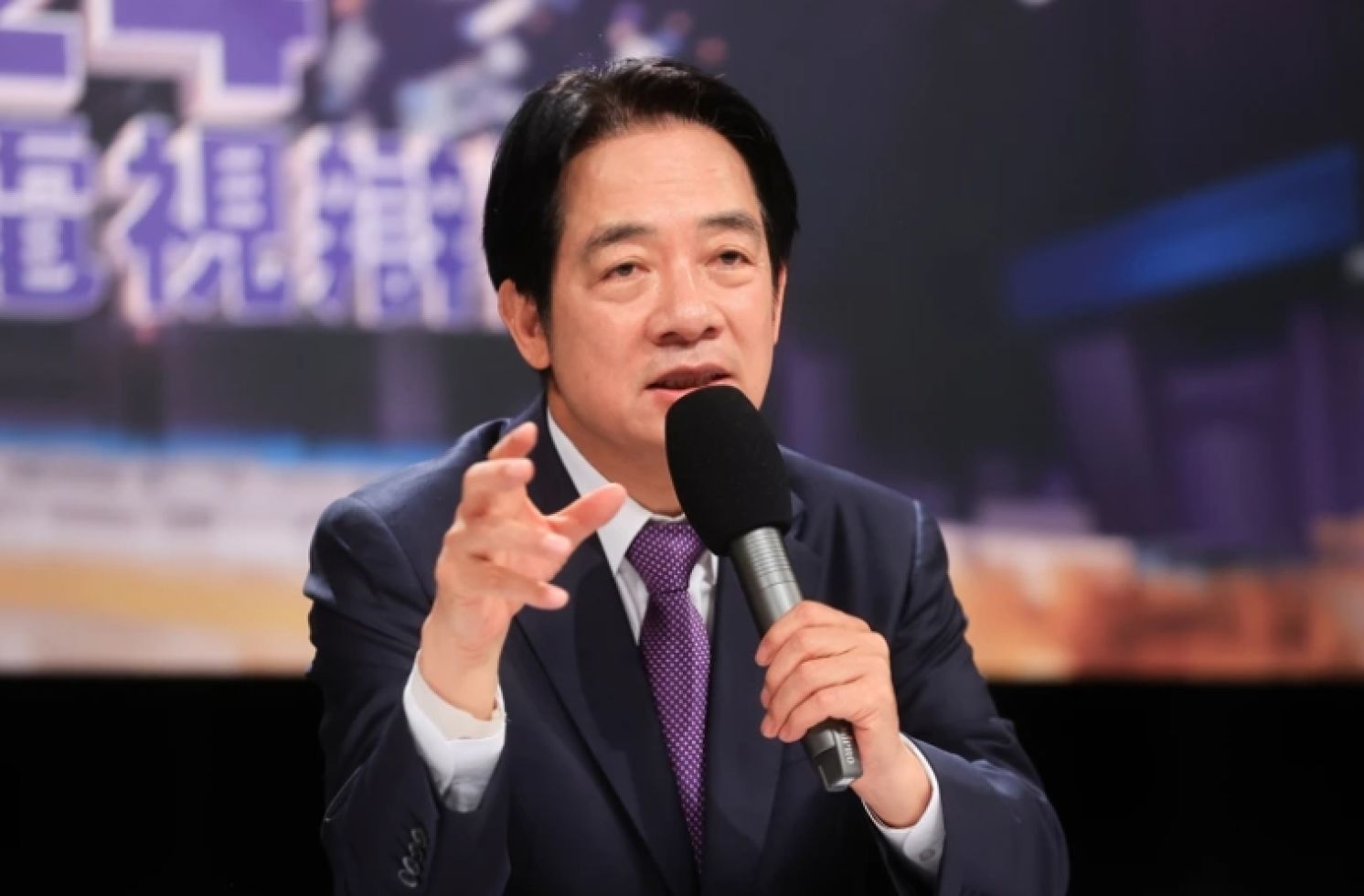
Lai Questions R.O.C. Constitution, Highlighting His Problematic Pro-Independence Stance
Summary Report by Taiwan Weekly
The presidential debate on December 30 featured a question from media representatives about whether the candidates acknowledged the Constitution of the Republic of China. In response, Democratic Progressive Party (DPP) presidential candidate William Lai questioned "Is treating the R.O.C. as the sacred mountain of cross-strait relations meant to promote peace or bring disaster to Taiwan?"
Later, in a press conference after the debate, Mr. Lai clarified that it was a slip of the tongue when he said the "R.O.C." instead of the “R.O.C. Constitution."
Mr. Lai has previously referred to himself as a "pragmatic advocate for Taiwan independence" and faced criticism from the other two candidates during the debate. He reiterated that Taiwan independence fundamentally advocates for the sovereignty of Taiwan, which belongs to the 23 million people and not to the People's Republic of China. He emphasized that the R.O.C. and the People's Republic of China (P.R.C.) are not mutually subordinate, defining Taiwan independence in this manner.
Regarding the acknowledgment of the R.O.C. Constitution, Mr. Lai stated that China's three stage theory is clear internationally, emphasizing there is only “One China," where both sides belong to one China, and the legitimate government representing China is that of the P.R.C. Mr. Lai questioned whether treating the R.O.C. as a sacred mountain for cross-strait relations is meant to promote peace or bring disaster to Taiwan.
Kuomintang (KMT) presidential candidate Hou Yu-ih expressed that the R.OC. Constitution is forever engraved in his heart. He opposes the "One Country, Two Systems" formula and advocates for a system of democracy and freedom under the R.O.C. He challenged Mr. Lai, stating that if he opposes the Constitution of the Republic of China, he should bravely say so. Taiwan People’s Party (TPP) presidential candidate Ko Wen-je, emphasized that they are running for R.O.C. president, not for U.S. governor or a mainland Chinese provincial governor. He stated that, of course, they should abide by the R.O.C. Constitution, and anyone who does not recognize the Constitution is not qualified to run for president.
After the meeting, Mr. Ko further questioned Lai, asking, "Did you even go to school?" Mr. Ko stated that Lai's remark that the R.O.C. acting as the guardian of both sides of the strait would bring disaster and that "mutual non-subordination between the two sides is Taiwan independence" would cause a stir. He emphasized the need for an explanation, noting that the American Institute in Taiwan (AIT) would quickly call to inquire about the situation.
According to scholars, the statements about a disaster and Taiwan independence will impact U.S.-China-Taiwan relations, deepening American skepticism about Mr. Lai.
Dennis Weng, associate professor of political science at Sam Houston State University in Texas, stated that the American doubt about Mr. Lai has two layers. Superficially, the United States is uneasy about Mr. Lai as a self-proclaimed "pragmatic advocate for Taiwan independence." However, the deeper layer is about Mr. Lai's political persona. Compared to President Tsai Ing-wen's diplomatic approach, Mr. Lai's tough stance was evident in the debate.
Liao Yuan-hao, associate professor of law at National Chengchi University, noted that the president's role is to maintain Taiwan's balance and security in U.S.-China-Taiwan relations. The way the nation is positioned is crucial. Although Mr. Lai claimed it was a slip of the tongue, the statement, at this time, raises concerns in Washington and Beijing. Mr. Lai seems reluctant to comply even with the surface-level constitutional "One China, Two Areas" framework. If elected, the pressure from the United States and China on Taiwan may increase.
Mr. Lai’s controversial "disaster statement" prompted President Tsai Ing-wen to address the issue in her 2024 New Year Address. She clarified that, as R.O.C. president, she handles cross-strait affairs in accordance with the Constitution, the Act Governing Relations between the People of the Taiwan Area and the Mainland Area, and other regulations. This has been her approach throughout her eight years in office.
President Tsai stated that the "1992 Consensus" is the political foundation proposed by the KMT for negotiating and interacting with China. She emphasized that it is distinct from the R.O.C. Constitution. According to President Tsai, the "1992 Consensus" poses risks to national sovereignty, and conflating it with the R.O.C. Constitution would endanger the constitutional framework. Hence, she asserted that the R.O.C. Constitution is not a risk, but the linkage to the "1992 Consensus" is where the concern lies.
According to President Tsai, Chinese leaders have stated that the "1992 Consensus" embodies the "One China" principle. She argued that the 1992 Consensus, One China principle, and "One Country, Two Systems" constitute an integrated framework for Taiwan. Accepting the "1992 Consensus" as a starting point would entangle Taiwan within China's definition of the consensus, posing the greatest risk to the sovereignty of the R.O.C. (Taiwan).
KMT vice-presidential candidate Jaw Shaw-kong criticized President Tsai's New Year Address as "nonsense." Both Mr. Hou and himself consistently oppose "One Country, Two Systems" and condemn the actions of Communist China in Hong Kong. Mr. Jaw also questioned why President Tsai always takes Mr. Xi's words as the standard.
Mr. Hou also questioned Mr. Lai, asserting that Mr. Lai was not misspeaking but actually aims to "rectify the name and establish a constitution," creating the "Republic of Taiwan." Mr. Hou warned that the United States does not support Taiwan independence, and if Mr. Lai promotes independence after being elected, it will surely lead to war.